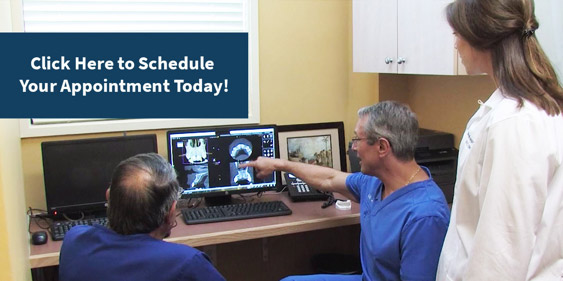 Bruxism, also known as chronic teeth grinding, affects millions of people. It oftentimes occurs in your sleep, which makes it more difficult to diagnose. Some people experience no symptoms whatsoever. Some experience a sore jaw, tension headaches, and a stiff neck. And some exhibit symptoms such as irregular, interrupted sleep patterns. Believe it or not, bruxism can point us in the direction of diagnosing a rather serious disorder known as Obstructive Sleep Apnea.
Bruxism, also known as chronic teeth grinding, affects millions of people. It oftentimes occurs in your sleep, which makes it more difficult to diagnose. Some people experience no symptoms whatsoever. Some experience a sore jaw, tension headaches, and a stiff neck. And some exhibit symptoms such as irregular, interrupted sleep patterns. Believe it or not, bruxism can point us in the direction of diagnosing a rather serious disorder known as Obstructive Sleep Apnea.
Did you know that according to studies, people with undiagnosed Obstructive Sleep Apnea are 24x more likely to undergo a heart attack?
In Obstructive Sleep Apnea (or OSA), the tongue relaxes and slides backward while you are sleeping, therefore blocking your airway. This results in snoring at its most mild form, or in its more severe form, waking up in the middle of the night gasping for air. This type of event prevents your heart, lungs, brain, and other crucial organs from getting the oxygen levels necessary to function correctly. If this oxygen deprivation happens on a nightly basis, it can take a real toll on the body. If left undetected, OSA greatly increases your risk for systemic disease such as high blood pressure, diabetes, stroke, and heart attack.
Fortunately, with early intervention, Brooks Dental can help prevent these systemic events from occurring. This newsletter is aimed at giving you more information in regard to sleep apnea – why we must address it, how to determine if you suffer from it, and ways we can successfully treat it.
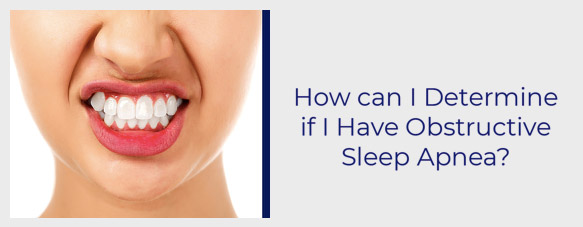
Does your spouse complain about hearing you snore? Do you wake up every morning feeling exhausted? Do you wake up with a dry mouth? Do you grind your teeth at night?
All of these symptoms are potential signs of OSA. It can take many forms, very commonly in the form of snoring. Snoring is the sound made by your throat when it is struggling to pass air through. The surrounding tissues vibrate due to the narrowed space, resulting in a reverberation of sound. Even if you claim to sleep peacefully at night, a professional sleep studycan tell us indefinitely if your body is suffering from lower than normal oxygen saturation levels due to a narrowed airspace.
Other signs and symptoms of OSA include high blood pressure, diabetes, obesity, and acid reflux. Believe it or not, a malpositioned bite can also be causative factor, which may require a consultation with our orthodontist, Dr. Doyle. Whatever the cause, the most appropriate way to formally diagnose OSA is to refer you for a sleep study.
When you visit Brooks Dental for a routine exam, we will be able to help detect the signs and symptoms associated with sleep apnea and intervene before it affects both your dental and general health.
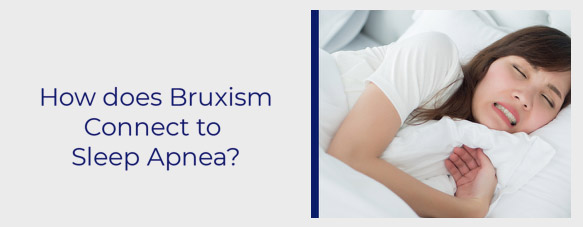
The National Sleep Foundation notes that approximately 25 percent of people with OSA also experience sleep bruxism. There are multiple theories that explain the link between OSA and bruxism. One theory explains that upon waking from sleep apnea, the heart and respiratory systems send stress hormones throughout the body, which then triggers the jaw to clench and grind. Another theory is more focused on airway instability that occurs during an apnea (or episode of snoring) that triggers a signal to the jaw to tighten its muscles.
If your body is unable to enter its natural REM cycle during deep sleep, the brain will remain active and cause you to clench and grind your teeth together at night. Therefore, it’s very common to see worn down teeth in those who suffer from moderate to severe OSA. Depending on the cause of nighttime bruxism, treatment options will differ. Remember that not all bruxers suffer from sleep apnea. A custom nightguard is an appropriate treatment for those whose bruxing habits stem from stress and other factors.
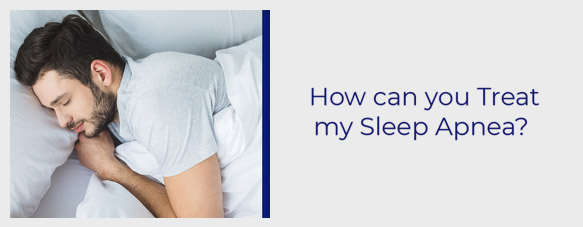
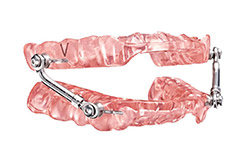 Studies show that less than 40% of patients with CPAP (continuous positive airway pressure)machines find the device helpful in improving their sleep. The bulkiness of the machine makes it difficult to get comfortable in bed, but moreover, the external source of air isn’t doing anything to open up the narrowed airway. The way to treat the cause would be to open up the space in the back of the throat. We at Brooks Dental can accomplish this with a comfortable, custom-made oral appliance that is molded to fit both your upper and lower teeth. This appliance is fabricated to physically shift your lower jaw forward, thus opening up the back of the throat. At the same time, the material wraps over the top of your teeth, thus protecting them from damage due to grinding. These appliances are formally known as mandibular advancement splints (MAS).
Studies show that less than 40% of patients with CPAP (continuous positive airway pressure)machines find the device helpful in improving their sleep. The bulkiness of the machine makes it difficult to get comfortable in bed, but moreover, the external source of air isn’t doing anything to open up the narrowed airway. The way to treat the cause would be to open up the space in the back of the throat. We at Brooks Dental can accomplish this with a comfortable, custom-made oral appliance that is molded to fit both your upper and lower teeth. This appliance is fabricated to physically shift your lower jaw forward, thus opening up the back of the throat. At the same time, the material wraps over the top of your teeth, thus protecting them from damage due to grinding. These appliances are formally known as mandibular advancement splints (MAS).
If you are experiencing bruxism symptoms or are struggling to sleep soundly at night, don’t wait to schedule an appointment for yourself or a family member. We can sit down with you and discuss whether you may be a candidate for a custom sleep appliance. You will quickly experience positive results not only for your teeth, but for your overall health and quality of life. Give us a call today to get started!

